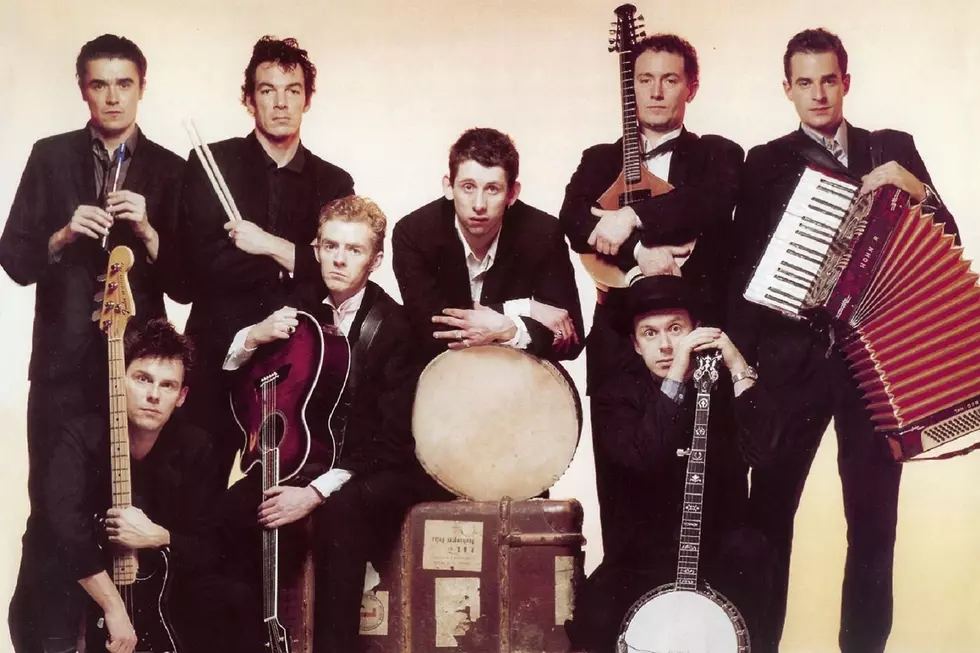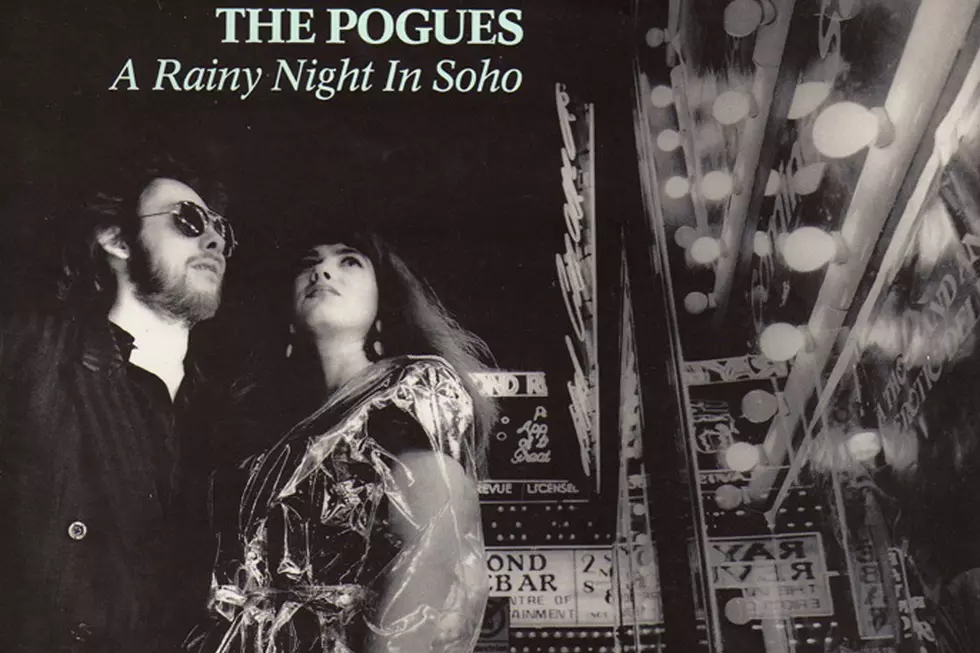
15 Years Ago: Dropkick Murphys Release the Rowdy ‘Sing Loud, Sing Proud!’
Boston Celt-punks Dropkick Murphys were in a state of flux back in 2001, and when the group surfaced that February with Sing Loud, Sing Proud—the band’s third full-length—fans were introduced to a retooled lineup that would drive much of the group’s output for the ensuing decade.
Most notably, founding guitarist Rick Barton departed early on in the recording sessions for Sing Loud, and was replaced by James Lynch, formerly with the Ducky Boys. DKM then beefed-up their six-string assault even further, also adding 17-year-old Marc “The Kid” Orrell on lead guitar. The band also recruited piper Robbie Mederios (aka “Spicy McHaggis”) and Ryan Foltz on mandolin and tin whistle, making the most of their abilities on the resulting album.
And indeed, Sing Loud, Sing Proud became an ideal vehicle for introducing all the new members, since the record features a classic fusion of guitar-driven punk and Irish folk, which at the time further helped define the band’s now-classic sound. From the towering initial chords and wailing bagpipes of opening track “For Boston,” (the Boston College fight song) it was clear DKM were a band that knew exactly who they were, and where their strong points lie, resulting in a solid (albeit not quite stellar) collection containing several future set list staples.
There’s a fair amount of covers and re-releases on the record, but all are vital inclusions, rather than mere retreads. The band’s interpretations of traditional Irish fare like “The Rocky Road to Dublin” and “The Wild Rover” have greatly helped to punk-ify St. Patrick's Day playlists for the last 15 years, while the band also rejuvenated and revisited some of their own past material, such as “Caps And Bottles,” and “The Legend of Finn MacCumhail,” which was previously released on DKM’s 1998 single, “Curse of a Fallen Soul” and performed on The Gang's All Here tour.
Were that not enough to keep listeners’ interest, the album also featured some key collaborations with guest stars, namely infamous Pogues frontman Shane MacGowan, who appears on “Good Rats,” and Cock Sparrer vocalist Colin McFaull, who lends his talents to “Fortunes of War.” There’s nary a track that doesn’t include a guest singer or instrumentalist, and bassist-singer-producer Ken Casey did a fine job of weaving this abundance of sonic ingredients into the album’s cohesive whole.
Thematically, the compositions on Sing Loud, Sing Proud echo the working-class ethos that has always been central to the DKM aesthetic. “Which Side Are You On?” a song written in 1931 by Florence Reece (wife of Sam Reece, a union organizer for the United Mine Workers in Harlan County, Ky.) details the bitter Harlan County War between coal miners and union organizers on one side, and coal firms and law enforcement on the other. “The Fortunes of War,” and “The Gauntlet,” meanwhile, tackle another prototypical DKM topic—the use (and abuse) of the working man on the front-lines of war—while “Heroes from Our Past” and “A Few Good Men” offer a rallying cry for workers (and warriors) through the ages.
The album isn’t without whimsy, either. “Good Rats,” for example, weaves a Celtic drinking yarn concerning the aforementioned vermin and a Dublin beer factory. And of course there’s the closing track, “The Spicy McHaggis Jig,” which memorializes the piper by stating “his pipes are gigantic, and so is his schlong,” while detailing his affection for “chicks over 400 pounds.” Spicy’s barroom misadventures conclude with a plus-size gal who “asked for a glove,” but Spicy “gave her a shove,” and “had baby McHaggis nine months to the day.”
Reviews of the album were relatively positive, with most critics agreeing Sing Loud was a solid record, but not DKM’s best. Punknews.org gave the album four out of five stars, saying the record “blends the sounds of Do or Die and The Gang’s All Here,” and that “the Murphy’s skill is in blending their folk influences into their street punk sound, without losing the attitude and energy of the later. This separates the band from acts with similar setups, like Flogging Molly.” AllMusic was slightly less effusive, giving Sing Loud a score of three stars out of five, and calling it “a decent addition to the band’s album roster.”
True, while it may not have been the overall best of DKM’s eight studio full-lengths, Sing Loud, Sing Proud is still a vital “bridge” album that solidified the band’s importance to the punk scene in the new millennium and introduced key members who would contribute greatly in the ensuing years. The twin-axe attack of Lynch and Orell helped define pivotal later releases like Blackout and The Warrior’s Code, while the balance of punk and folk on the album presented the content framework for ensuing records. It was truly a release whose praises were worth singing loudly, and proudly.
20 Albums You Won't Believe Turn 20 in 2016
More From Diffuser.fm









